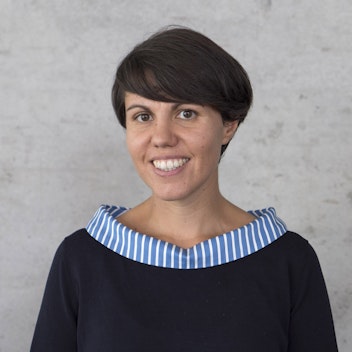
Scotland and Immigration: Moving beyond political narratives of openness
 Marcus Nicolson
Marcus Nicolson
Radical right parties across Europe have mobilized against different feminist goals. How are these party positions reflected in the electorate? The example of voters of the radical right Alternative for Germany (AfD) shows why cultural grievances about immigration, feminism and LGBTQI+ issues should be studied in combination.
It has long been established that radical right voters oppose and feel strongly about immigration. These so-called cultural grievances about increasingly multicultural and multi-ethnic societies are important reasons why people vote for the radical right. While the term “cultural grievance” describes the resentment of various cultural changes in societies, including women’s emancipation and the extension of LGBTQI+ rights, research on the role of such grievances in radical right voting has largely focused on grievances related to immigration. Compared to the evidence on radical right voters’ anti-immigration attitudes, we know less about how they feel about feminism and LGBTQI+ rights.
To understand radical right voters’ cultural grievances regarding not only immigration but also feminist and LGBTQI+ issues, a colleague and I talked to both voters as well as members and local-level politicians of the German Alternative for Germany (AfD) in the summer of 2021. Given the AfD’s particular electoral success in Eastern Germany, we mostly met AfD voters in Eastern German states. In doing so, we tried to gain a better understanding of these people’s views, feelings and reasonings beyond what can be explored through survey data.
Understanding radical right voters’ motivation and reasoning is important for understanding the reasons for the rise of radical right parties. Radical right voters’ cultural grievances beyond immigration are particularly important because, if politically mobilized, they entail risks for the rights of immigrants, women and LGBTQI+ people. Throughout the past decade, radical right parties across Europe have mobilized against different feminist goals, such as the gender quota and gender-sensitive language in Germany. How are these party positions reflected in the electorate? Do radical right voters even consider feminist and LGBTQI+ issues, and how do they justify their views when they do?
Many of the AfD voters we talked to argue about feminism and LGBTQI+ issues in similar ways as they argue about immigration, namely they often do not perceive existing discrimination. As regards discrimination directed towards immigrants, women and the LGBTQI+ community, people who stand on the far right often argue that these groups are not discriminated against, and consequently, no anti-discrimination measures are needed. For instance, one AfD voter claims that “when they [women] didn’t have the right to vote yet […], they had a reason to take to the streets, but [nowadays] gender equality has long since been achieved”.
Some of the AfD voters we talked to do perceive existing discrimination, however, they tend to justify it. For instance, they justify discrimination against immigrants because of immigrants’ allegedly inadequate behaviour, or they justify discrimination towards women because of their supposedly natural or biological gender-related differences. “Men and women are never equal, so you can never give them equal rights […]. Because a man can’t breastfeed, so he can’t be equal to a woman, and a woman can’t work as hard as a man, physically”, claims one AfD voter. When the AfD voters perceive discrimination as justified, they also consider anti-discrimination measures as unnecessary.
Many of the AfD voters we talked to argue that financial state assistance for immigrants comes at the expense of financial state assistance for Germans. Similarly, they perceive that women receive jobs and promotions based on their gender, resulting in men unfairly struggling within the job market. For LGBTQI+ issues, they feel that the amount of public attention spent on LGBTQI+ issues is disproportionately high, resulting in an unfairly small amount of public attention spent on cis-hetero people.
Such arguments are based on zero-sum perceptions. In zero-sum perceptions of group relations, one group’s gains come at the expense of another group. If one group wins, another group loses. As the above examples illustrate, the AfD voters we talked to apply a similar kind of zero-sum reasoning to all three kinds of cultural grievances: immigration, feminism and LGBTQI+ issues.
The intersectionality concept was coined by the civil rights advocate and leading scholar of critical race theory Kimberlé Crenshaw (1989). It holds that different discrimination bases intersect in determining a person’s privilege and discrimination in society. For instance, a woman of color experiences different discrimination than a white woman does, given the intersection of racist and sexist discrimination.
In addition to arguing separately about immigration, feminism and LGBTQI+ issues, the AfD voters tend to connect these three issues in their reasoning. In such cases, they argue that several minority groups are unfairly advantaged in similar ways.
For instance, one AfD voter complains that ‘minorities are really being put first’ and gives examples of cultural grievances over immigration, feminism and LGBTQI+ issues: the renaming of artwork and changes in children’s books made to avoid ethnic or racial discrimination as well as the uptake of gender-inclusive language and third-gender toilets. Given the AfD voters’ tendency to jointly consider these social changes, I argue that cultural grievances should be considered as multidimensional and studied together rather than separately, as is often done in research.
Finally, I borrow Kimberlé Crenshaw’s concept of intersectionality to illustrate another way, in which some AfD voters jointly consider immigration, feminism and LGBTQI+ issues in their cultural grievances. They take an intersectional lens to explain their grievances, as illustrated by the following quote: “The heterosexual, White man [has it] worst. […] And the Black lesbian woman, she’s doing the best.” In this, the more minority groups an individual belongs to, the more advantaged the individual is considered, and vice versa. This intersectional argument about cultural grievances illustrates another example of how AfD voters make sense of different cultural grievances by considering them in combination.
Cultural grievances about immigration, feminism and LGBTQI+ issues should be studied jointly for two reasons: Firstly, radical right voters seem to think about these grievances in very similar ways, as expressed by the same kinds of arguments that they apply to the different grievances. Secondly, some radical right voters even refer to the different cultural grievances within the same argument, further illustrating that these grievances are closely related to each other.
As radical right parties are growing and gaining influence in many European countries, it is important to understand that they represent grievances beyond immigration, including ones about feminism and LGBTQI+ rights, with potential consequences for immigrants’, women’s and LGBTQI+ rights across Europe.

This content is licensed under a Creative Commons Attribution 4.0 International license.

 Marcus Nicolson
Marcus Nicolson



 Andrea Abel
Andrea Abel